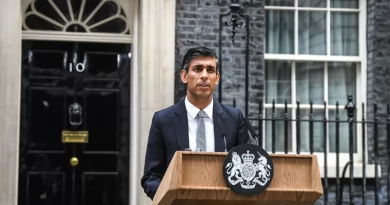House of Lords passes major clean air reforms ahead of Commons scrutiny

Campaigners say plans for sweeping reforms of existing UK air quality legislation have cleared a major landmark after being passed by the House of Lords.
The Clean Air (Human Rights) Bill would legally require the government to ensure air quality standards are considered across government policy and also mandate stricter monitoring in buildings if passed into law.
It will now be considered for debate by MPs.
The bill has this month completed comprehensive scrutiny by peers, with campaigners arguing that the proposals will serve as a vital new benchmark for standards and how IAQ is being measured and monitored by building operators.
A major focus of the wide-ranging legislation will be to ensure ongoing parliamentary scrutiny of external and internal air quality targets. It will also outline responsibilities for building operators to monitor and report on the quality of air in their buildings.
The changes would apply to both privately owned and public buildings.
Green Party MP Caroline Lucas is now expected to lead the bill through the House of Commons with the aim to gain government or cross party backing to be signed into law.
The proposals were originally introduced to the House of Lords earlier this year by Green Party peer Baroness Jenny Jones as a private members’ bill that enshrines the right to clean air as a priority that must be upheld in the work of all government departments.
The Clean Air in London campaign group, which helped assist with drafting the proposals, said that a number of important provisions were strengthened as the bill passed through the House of Lords.
Simon Birkett, founder and director of Clean Air in London, said the proposals were amended to require that standards should be based on the air quality guidelines set out by the World Health Organisation (WHO). These latest guidelines apply to both indoor and external air quality.
Other notable amendments to the bill were changes to ensure a requirement for monitoring a wider range of pollutants such as ultrafine particles in the air. Levels of Nitrogen dioxide (NO2) within indoor environments are also included in the scope of the bill.
These amendments are intended to bring requirements up to date with the latest WHO advice, Birkett added.
The passing of the bill through five stages of scrutiny in the House of Lords has created a new benchmark that can be used to hold policy makers and the building engineering sector against.
Mr Birkett said that both building occupants, as well as facilities managers and other operators would be able to use the bill to measure the quality of air in a building and call for action where requirements are not met.
This would also help reduce the excuses around a failure to properly ventilate or treat poor quality air, while also tackling concerns about the spread of viruses such as Covid, he said.
If approved, the bill would also ensure that parliament had a continued and important role to scrutinise and update standards in line with any future amendments.
Birkett said this would allow MPs and the Lords to revise requirements or standards in line with any future amendments from the WHO. This would also apply to recommendations from cross-party committees and bodies charged with overseeing environmental policy.
He said: “That is a proper democratic way for tightening the standards if needed.”
A function of the bill would be to introduce an annual review process to be overseen by the Climate Change Committee. This process would also be backed by a new independent body known as the Citizen’s Commission for Clean Air that would be formed under the current bill and given powers to enforce the legal requirement of the right to breathe clean air.
Birkett concluded: “If they recommended tightening standards, they would only be implemented if approved by both houses of parliament.”
Any plans to introduce these requirements would be dependent on the bill being approved by the House of Commons and passed into law.
If there is insufficient backing from the legislation during the current parliament to pass the legislation, campaigners are hoping to see parties include plans for the Clean Air (Human Rights) Bill in future party manifestos.
‘Ella’s Law’
The Clean Air (Human Rights) Bill is also known as ‘Ella’s law’. The name relates to Ella Roberta Kissi-Debrah, a British schoolgirl who died in 2013. A coroner ruled in 2020 that air pollution had directly contributed to the schoolgirl’s death.
A year later, the coroner said the government should look to introduce stricter standards for acceptable levels of airborne contaminants in line with changes set out by the WHO to its air quality guidelines.
Ella’s mother, Rosamund Adoo Kissi-Debrah, has been campaigning to enshrine access to clean air as a human right under international law.





